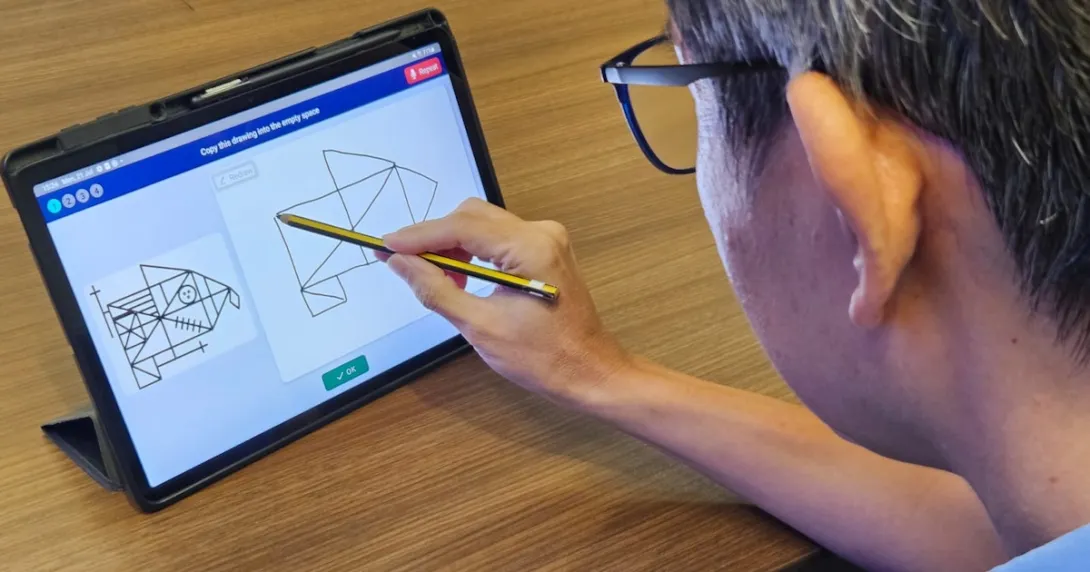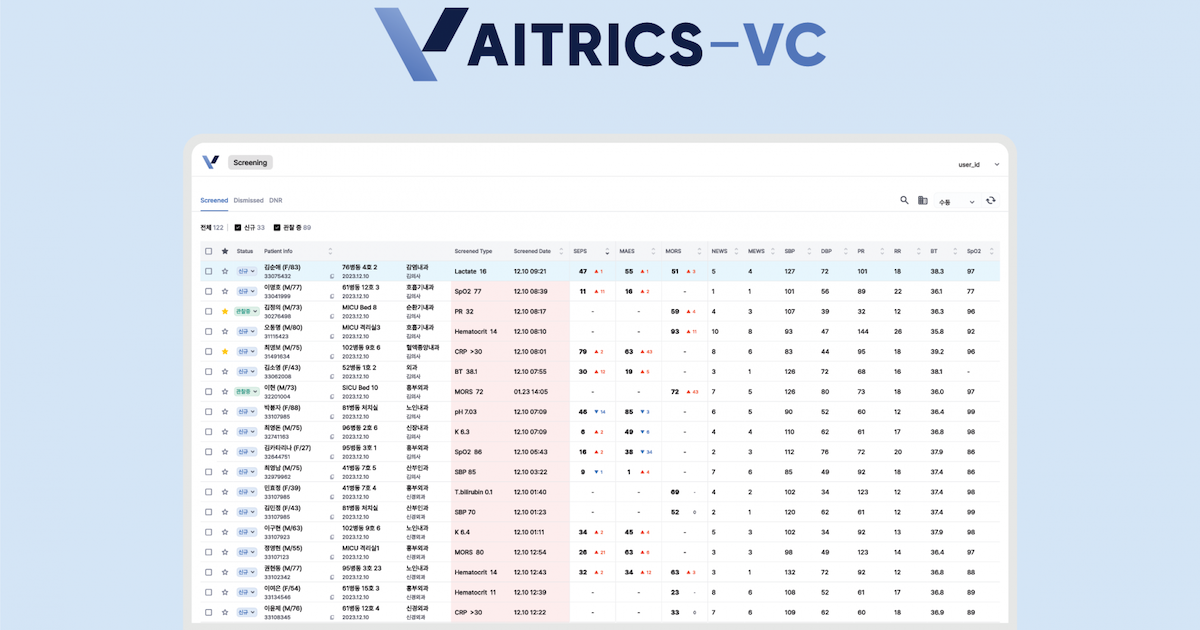
A digital drawing application developed by Singapore General Hospital and the Government Technology Agency of Singapore has demonstrated accuracy on par with a detailed cognitive test in detecting pre-dementia in seniors.
The five-minute drawing test called PENSIEVE-AI, which users aged 65 and over can do with little or no assistance, involves the use of a touchscreen tablet and a stylus pen.
It has four tasks, including drawing shapes and a clock, to test different areas of thinking and memory, which are then assessed by AI to spot signs of pre-dementia or mild cognitive impairment (MCI).
In a nationwide study involving almost 1,800 seniors, the app demonstrated 93% accuracy in detecting MCI. Findings have been published in Nature Communications.
WHY IT MATTERS
57 million people worldwide had dementia in 2021, according to the World Health Organization, with almost 10 million new cases being recorded each year.
In Singapore, about one in 11 has dementia, while one in eight seniors has pre-dementia.
Pre-dementia cases, however, may be underestimated; it is often missed as it can seem a sign of normal ageing.
Moreover, "almost 90% of seniors with pre-dementia are not diagnosed because current tests are too complex, take too long, or cost too much," said associate professor Liew Tau Ming, lead principal investigator of PENSIEVE-AI and a senior consultant at SGH Department of Psychiatry. A standard detailed cognitive test can take up two hours, he noted.
With their project fulfilling this need for a simple, cost-effective, and quick yet effective MCI test, SGH now looks to expand access to PENSIEVE-AI to more Singaporean seniors. They will also further improve the app's capabilities, including the ability to predict a user's risk of developing dementia.
Additionally, the next phase of their study will track the same participants' changes in memory over time.
MARKET SNAPSHOT
Early this year, a mobile brain game application called ReCOGnAIze, developed at the Lee Kong Chian School of Medicine of Nanyang Technological University, Singapore, was incorporated into private GP clinic group Osler Health's comprehensive health screening service. The app's games, which can be done in 15 minutes, have reportedly demonstrated 89% accuracy in detecting MCI.
Another Singaporean university, Singapore University of Technology and Design, recently developed a dementia prevention application. Tested at an active ageing centre of social service agency Lions Befrienders, the app called Ami features touchscreen-based games that can help prevent dementia progression among seniors by improving their cognitive abilities through bilingualism or multilingualism.
Both projects have sought investments to expand access to the applications.


